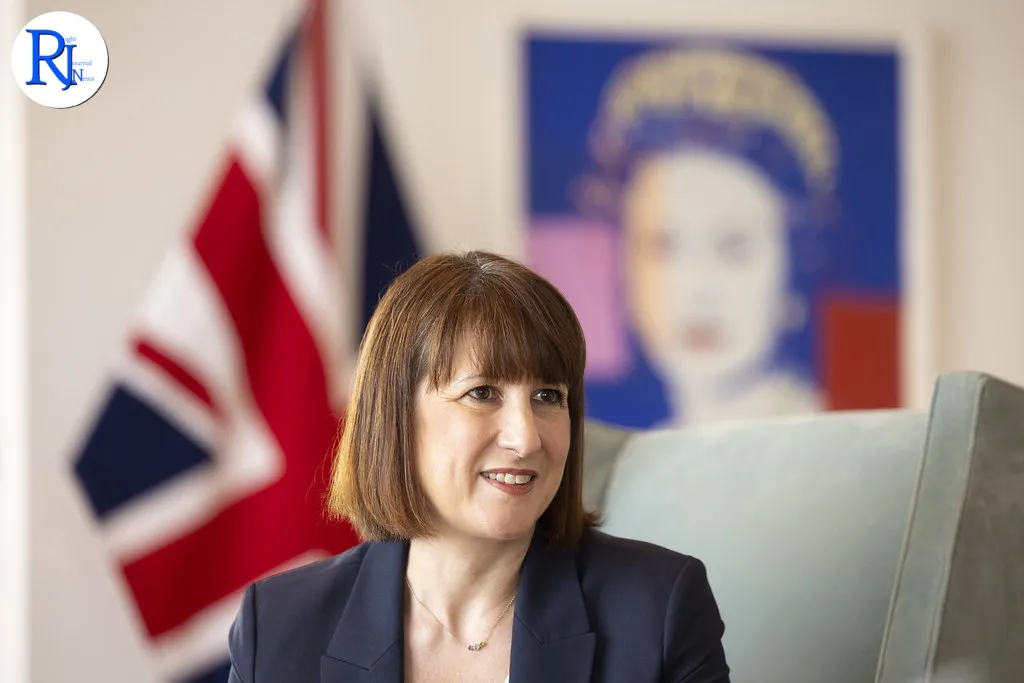Rachel Reeves, the UK’s Shadow Chancellor, faces a daunting challenge as economists from a leading economic group emphasise the need for a £50bn tax increase to adhere to fiscal regulations. This warning highlights the potential financial strain on businesses as the government grapples with its fiscal policies. With the autumn budget discussions looming, the scale of the fiscal adjustments required underscores the complexity of the economic landscape.
Timing and Location of Economic Concerns
The economists’ warning emerged in early August 2025, just months before the crucial autumn budget review. This timing is pivotal, as the government aims to address its fiscal rules amidst a backdrop of economic uncertainty. The location of these discussions, within the halls of the UK Treasury, further signifies the gravity of the situation, as policymakers deliberate on the best course of action to stabilise the economy.

The Economic Group’s Analysis
Economists from the Institute for Fiscal Studies (IFS), a prestigious economic think tank, have laid out a stark analysis. They assert that the government is on course to miss its “stability and growth” target unless significant fiscal measures are implemented. Paul Johnson, Director of the IFS, stated, “The scale of adjustment needed is substantial, and without intervention, the fiscal rules will be breached.” This analysis forms the basis of their recommendation for a £50bn tax increase, a move that would significantly impact businesses and individuals alike.
Impact on Businesses and the Economy
The proposed tax hike has sparked concerns within the business community, as it could lead to increased operational costs and reduced profit margins. Business leaders are apprehensive about the potential impact on investment and growth. The Confederation of British Industry (CBI) has voiced its concerns, with Director-General Rain Newton-Smith noting, “While fiscal responsibility is crucial, the government must carefully consider the implications on business growth and economic recovery.”
Historical Context and Fiscal Challenges
The UK government’s fiscal rules, designed to ensure economic stability, have historically been challenging to maintain. The current economic climate, marked by inflationary pressures and global uncertainties, exacerbates these challenges. The IFS’s recommendation for a significant tax increase draws from historical precedents where similar measures were necessary to restore fiscal balance. However, the scale of the proposed increase is unprecedented, reflecting the unique circumstances facing the UK economy today.
Expert Insights on Fiscal Policy
Economists and financial experts have weighed in on the potential consequences of the proposed tax adjustments. Dr. Gemma Tetlow, Chief Economist at the Institute for Government, commented, “The government must strike a delicate balance between fiscal prudence and economic growth. A £50bn tax increase, while necessary, could have far-reaching implications for the broader economy.” This sentiment echoes the broader debate on how best to manage fiscal policy in the current economic environment.
Potential Political Repercussions
The political ramifications of the proposed tax increase are significant. Rachel Reeves, as a key figure in the Labour Party, faces a challenging political landscape as she navigates these economic waters. The potential backlash from businesses and constituents could influence political dynamics in the lead-up to the next general election. Political analysts suggest that the government’s ability to effectively communicate the necessity of these measures will be crucial in mitigating potential fallout.
Rachel Reeves and the UK government are at a critical juncture as they consider the economic realities and potential impacts of a £50bn tax increase. The decision to proceed with such measures will require careful consideration of the economic and political landscape. As the autumn budget discussions approach, the government’s ability to balance fiscal responsibility with economic growth will be closely scrutinised. The outcome of these deliberations will shape the UK’s economic trajectory in the coming years, with significant implications for businesses and individuals alike.

